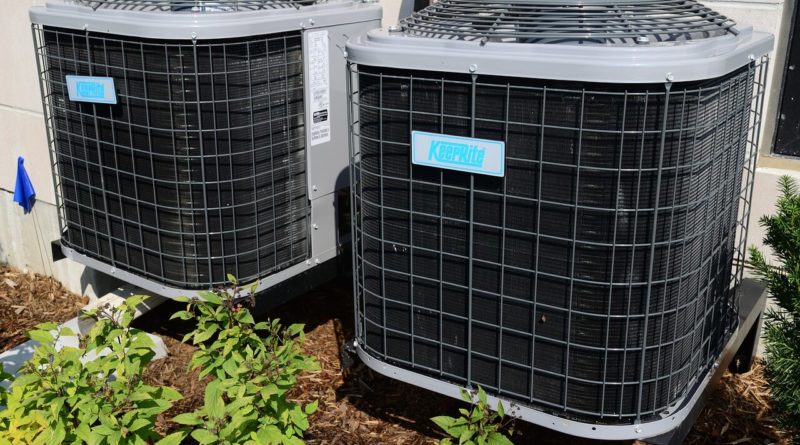HVAC Systems That Every Property Or Homeowner Should Consider
Every day we breathe in the air that surrounds us. Good or bad, we have little choice, especially when we’re outside lounging on your garden furniture. The story changes radically when talking about indoor air. That’s something you and I can control. But how? And why?
Controlling indoor air is more than just buying a piece of equipment. It’s about buying the right piece of equipment. Heating, ventilation, and air conditioning systems, also known as HVACs are the solution to this problem.
Air quality is often overlooked by property and homeowners alike. This doesn’t necessarily happen because people are not aware of the importance of air quality but mostly because people are unaware that their HVAC isn’t doing a proper job. If your HVAC system is underperforming, you end up with bad temperature control and improper ventilation. This leads to the accumulation of contaminants in the air that you breathe. Needless to say, contaminated air is responsible for many diseases, from your lungs to your skin, and even several forms of cancer.
To prevent these diseases and to make your life easier and healthier, here are the HVAC systems that you should consider.
Individual Systems
HVAC systems come in various shapes and sizes. Not only this but they also perform different tasks. Individual systems are those that perform a single task and they perform it well. For example, an individual system would be one that only takes care of ventilation, without heating or conditioning it.
In general, smaller residential areas don’t require much planning. A system that can cover the designated area is usually more than enough to get the job done. When it comes to commercial areas, things change a bit. Due to their nature, commercial areas usually occupy larger areas. This means more rooms and sometimes more floors. Choosing the right HVAC system for commercial areas usually involves an expert assessment and a lot more planning.
-
Heating
An individual heating unit has the sole purpose of generating and distributing heat. Choosing the right heating unit means there won’t be any temperature differences between the rooms and floors of your home or office. Unless you specify them through the thermostat. A heating unit that is too small won’t be able to keep the heat throughout the entire area while a heating unit that’s too big will mostly go unused and cost you a lot of money for no reason.
The main thing to keep in mind when buying a heating unit is that burning fuel releases volatile organic compounds, or VOCs. A high concentration of VOCs is detrimental for the health of the people inhaling them. Asthma, lung disease, skin irritation, and cancer are just a few of the afflictions caused by VOCs. Lower concentrations also pose a health risk, although less considerable. For these reasons, the recommendation is to also invest in a ventilation system.
-
Ventilation
To ensure that air quality is kept as high as possible, you need ventilation. The right ventilation system ensures that indoor air is properly circulated, filtered, and exchanged. Stagnant air is a good source of contaminants which is why you want to prevent it from appearing. Traditional ventilation simply involves the opening of windows. Unfortunately, this only circulates the air, it doesn’t filter it.
The right ventilation system is able to not only circulate the air in the room, but also to filter it, to remove various odours from it, and to control the humidity levels. Most importantly, the right ventilation system is also able to filter out a large part of the air contaminants that are polluting your every breath. With the right ventilation system, you wouldn’t need to go outside and lounge on your garden sofa just to get a taste of fresh air.
-
Air Conditioning
Generally speaking, air conditioning refers to the process of reducing heat and moisture from indoor spaces. This is usually used to improve the comfort of the home or office occupants. The system can be used for both residential and commercial purposes. While most people believe that air conditioning is just a way of creating a more comfortable environment, there are other uses for these systems as well.
One of them is to keep the temperatures low in rooms containing heat-producing devices, such as servers or power amplifiers. In addition, air conditioning can be used to create the proper environment for storing or displaying artwork or other temperature or humidity sensitive items.
An air conditioning system works by using a fan and a cooling unit. The cooling unit is usually an electric refrigerant. However, cooling can also be achieved through evaporation and free cooling. Desiccants are added to the unit for it to be able to reduce moisture.
-
Free Cooling
This system is more economical than the other three. The cooling process is done by harnessing the cold air from outdoors. This is then used to cool water which in turn is used for air conditioning. The resulting cold water can be stored for short or long periods of time, depending on the needs. An additional chiller is installed in these systems to aid with cooling the water when the temperatures outside are not low enough.
Data shows that during cold months, a free cooling system is 75% more energy and cost efficient than a traditional air conditioning unit.
Combined Systems
Modern times call for modern measures. Today, a wide variety of combined HVAC systems are available. Sometimes combined systems are chosen for their performance, other times they’re chosen because they occupy less space and don’t take away from the building’s aesthetics.
-
Heating & Air Conditioning
There are two types of combined heating and air conditioning systems: central and split. The central system is a modern option that operates quietly and can heat and cool air by matching the settings of the thermostat. The split system is widely used for residential air conditioning. It’s made of an indoor unit that contains the air compressor responsible for cooling and conditioning the air.
Take Home Message
HVAC systems come in all shapes and sizes. Choosing the right unit will improve the quality of your life in multiple ways: you’ll suffer from fewer airborne diseases, you’ll enjoy the indoor space more thanks to proper cooling and ventilation, and you won’t have temperature issues during the winter months.
All of these benefits can be achieved by investing in the right unit. You should worry less about the unit being individual or combined and worry more about it being able to meet your needs. Larger areas will need more powerful HVACs while smaller areas can get away with smaller HVACs.

